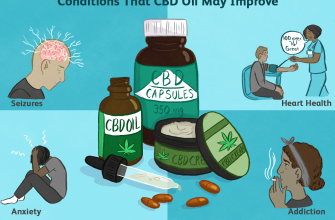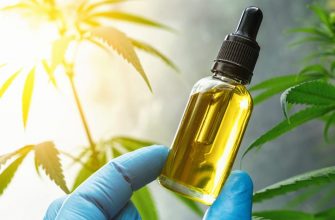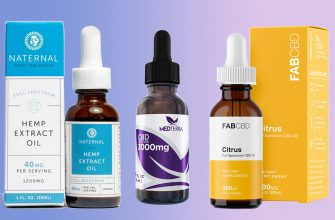It has been found that the endocannabinoid system is a kind of checking system in our body and helps to keep other physiological processes in balance.
The pacemaker affects sleep, appetite, stress, mood, inflammation in the body, memory, fertility, and pain perception.
The endocannabinoid system (ECS) was discovered very recently, in the 90s, when scientists tried to figure out how THC affects the functions of the human body.
They found that most mammalian bodies have a network of receptors (CB1 and CB2) located in the brain, in the nervous system, and also in the immune system.
These receptors act like locks on the surface of cells, waiting to be unlocked by cannabinoid substances – endocannabinoids that the body creates itself (endo = “inside” the body).
5 easy steps to take care of your pace and get it back in balance:
1. Overeating
The CB1 and CB2 receptors react with endocannabinoid organic substances (Anandamide and 2-AG) that affect biological functions such as reducing pain or protecting the body from stress.
Scientists are still researching the pacemaker, but it has definitely been discovered that the pacemaker plays an important role in metabolic dysfunctions like obesity or diabetes.
A recent study in rodents fed a “Western diet” found that abnormal cravings for sweet and fatty foods were also associated with high levels of endocannabinoids in the body and unregulated CB1 receptors, compared to rodents that were on a regular diet.
Another theory “dysregulation of the endocannabinoid system in diabetting is a complex problem” describes that excessive amounts of body fat also increase the amount and activity of endocannabinoids because fat cells are capable of producing endocannabinoids themselves.
It’s also another reason to ditch donuts, chips and hamburgers and buy a fitness center membership.
2. Lack of omega-3 fatty acids in the diet
Even on a healthy diet, it is important not to exclude fats, especially those that are good for the health of our body.Omega 3 and Omega 6. These fats should be consumed in a ratio of 3:1 (Omega 3:Omega 6).
In the case of an unbalanced diet full of processed and canned foods, the amount of Omega-6 is exceeded, and this leads to an imbalance in the pacemaker. Omega-3 deficiency corresponds to low levels of DHA in the brain, which can lead to cognitive decline, psychiatric disorders, increased risk or degenerative disorders, chronic inflammation or joint pain.
The solution is simple: eliminate canned, processed foods, or other chemically processed foods from your diet and replace them with omega-3-rich foods like fish and seeds like flax, chia, or hemp seeds.
3. Chronic stress
Stress is considered one of the factors that cause many diseases, from cancer to autoimmune and cardiovascular diseases. Chronic stress affects the pacemaker by lowering levels of anandamide and 2-AG endocannabinoids, which are pleasurable.
Relaxation techniques like meditation or yoga or acupuncture work like antidepressants and they increase anandamide levels in the brain. Another possibility to increase the function of the pacemaker and at the same time reduce the level of stress is the regular use of CBD (Cannabidiol). This cannabinoid binds to receptors in sufficient quantities and works against stress, while at the same time it does not have an intoxicating effect like THC.
4. Alcohol abuse
A glass of alcohol that we drink from time to time does not affect the pace. Scientists have found that the amount of alcohol consumed corresponds to an increasing amount of endocannabinoids in the body, which subsequently return to normal.
The problem begins with chronic alcohol use, which depletes the pacemaker, and this leads to a decrease in the ability to respond to stressful situations. It is for this reason that people tend to abuse alcohol repeatedly – and a vicious cycle begins. Martin Li of the CBD Project wrote: “… if alcoholism is a syndrome of insufficient pacing, then it is understandable why people can stop drinking due to smoking cannabis, which activates the pacing receptors.” You can also boost your pace by eating omega-3 rich foods and exercising regularly.
5. Lack of sleep
Have you ever noticed the connection between lack of sleep and increased appetite the next day? Researchers have shown that sleep deprivation increases endocannabinoid 2-AG levels by up to 80%. At the same time, it was found that the study participants increased desire to eat unhealthy foods (fast food, sweets, etc.). Scientists believe that this is due to increased activation of CB1 receptors, which cause the need to snack.
This is not a problem if a person suffers from insomnia only from time to time. If insomnia is persistent, it can lead to weight gain, which can lead to health risks like diabetes, heart disease, or an over-exerted pace.
If the lack of sleep is due to a hectic lifestyle, try limiting or eliminating some of your social activities altogether. If lack of sleep is out of your control (for example, when caring for a child or working shifts), try to satisfy your need for fatty foods with healthier snacks.
While we all know that a varied diet, exercise, relaxation, moderate drinking and enough sleep are the keys to a happy life, now you have one more reason to stick to these rules – keep your pace in balance.





